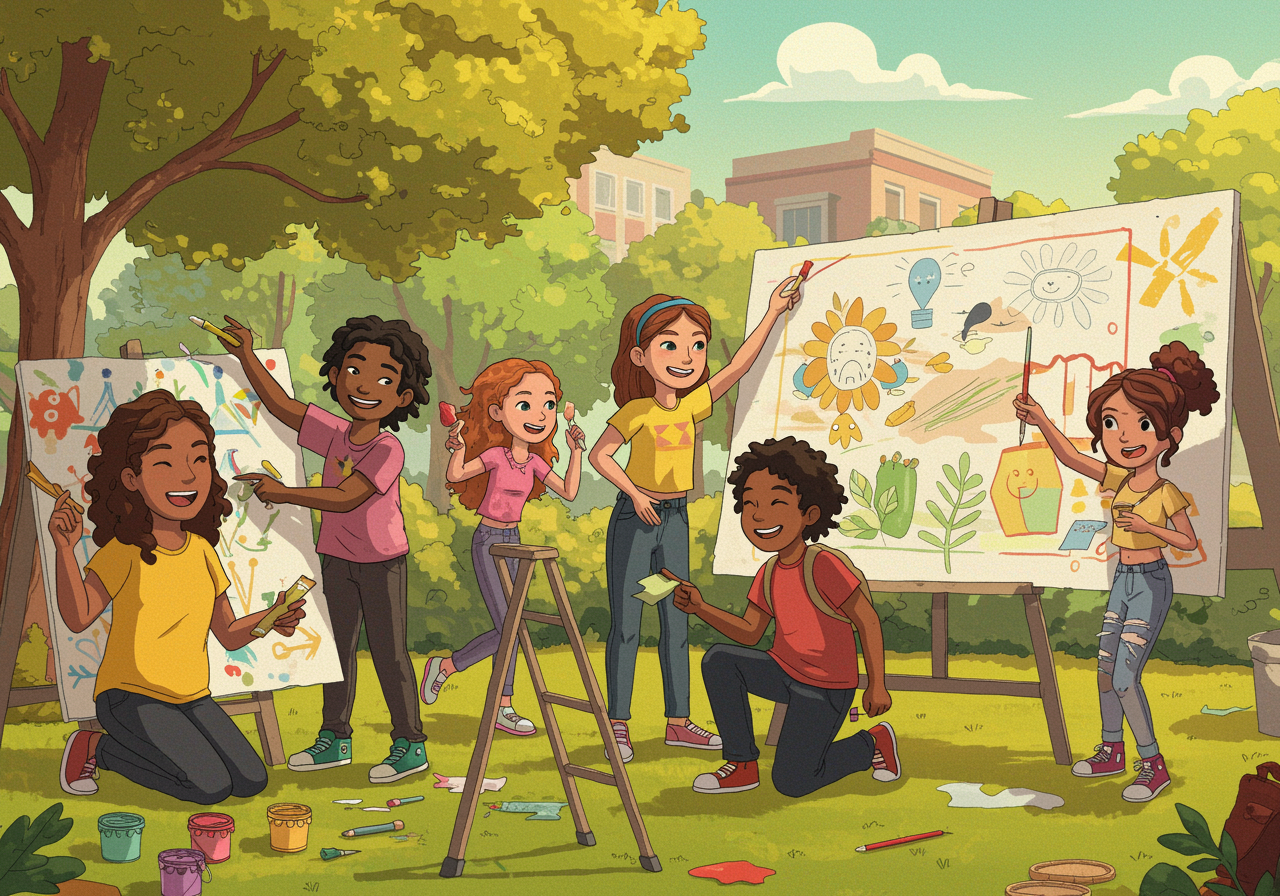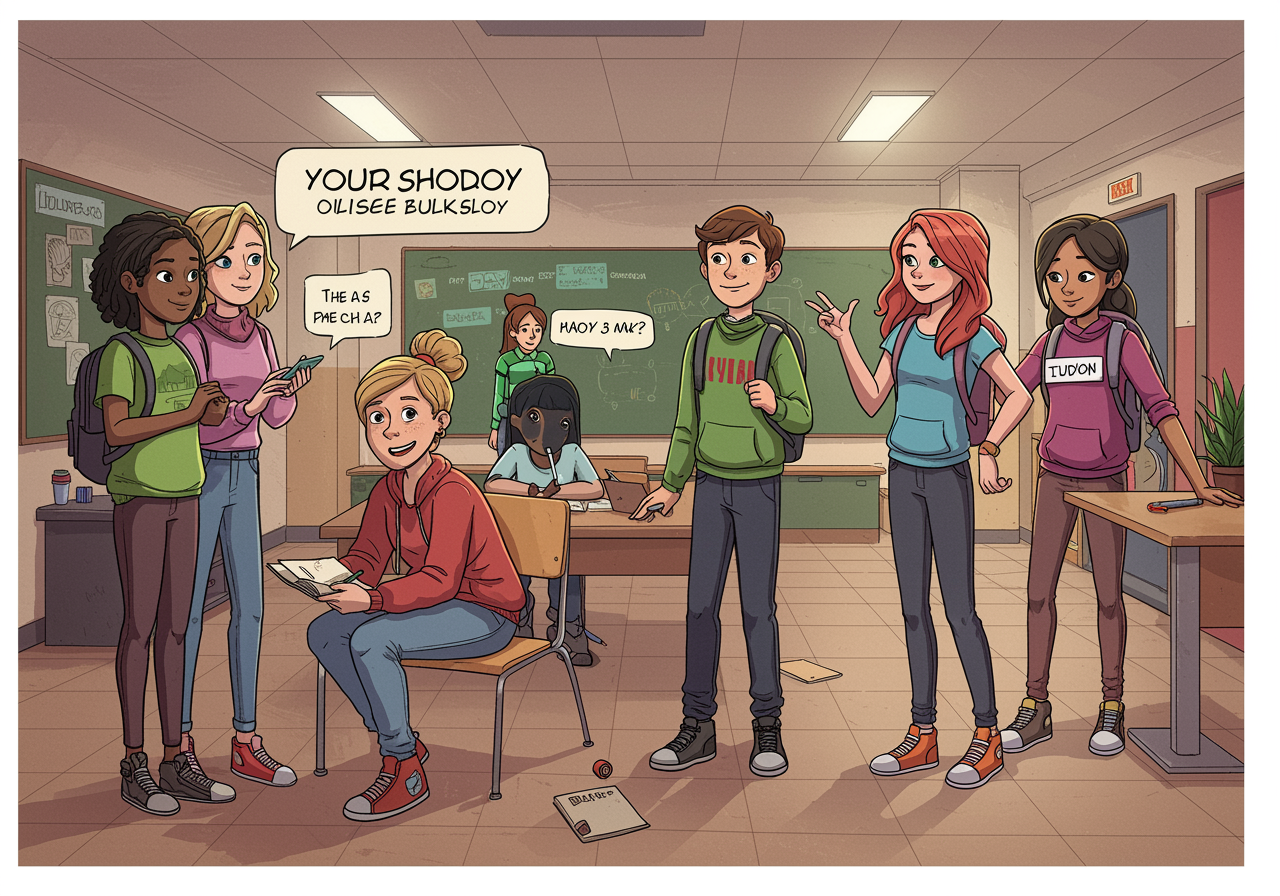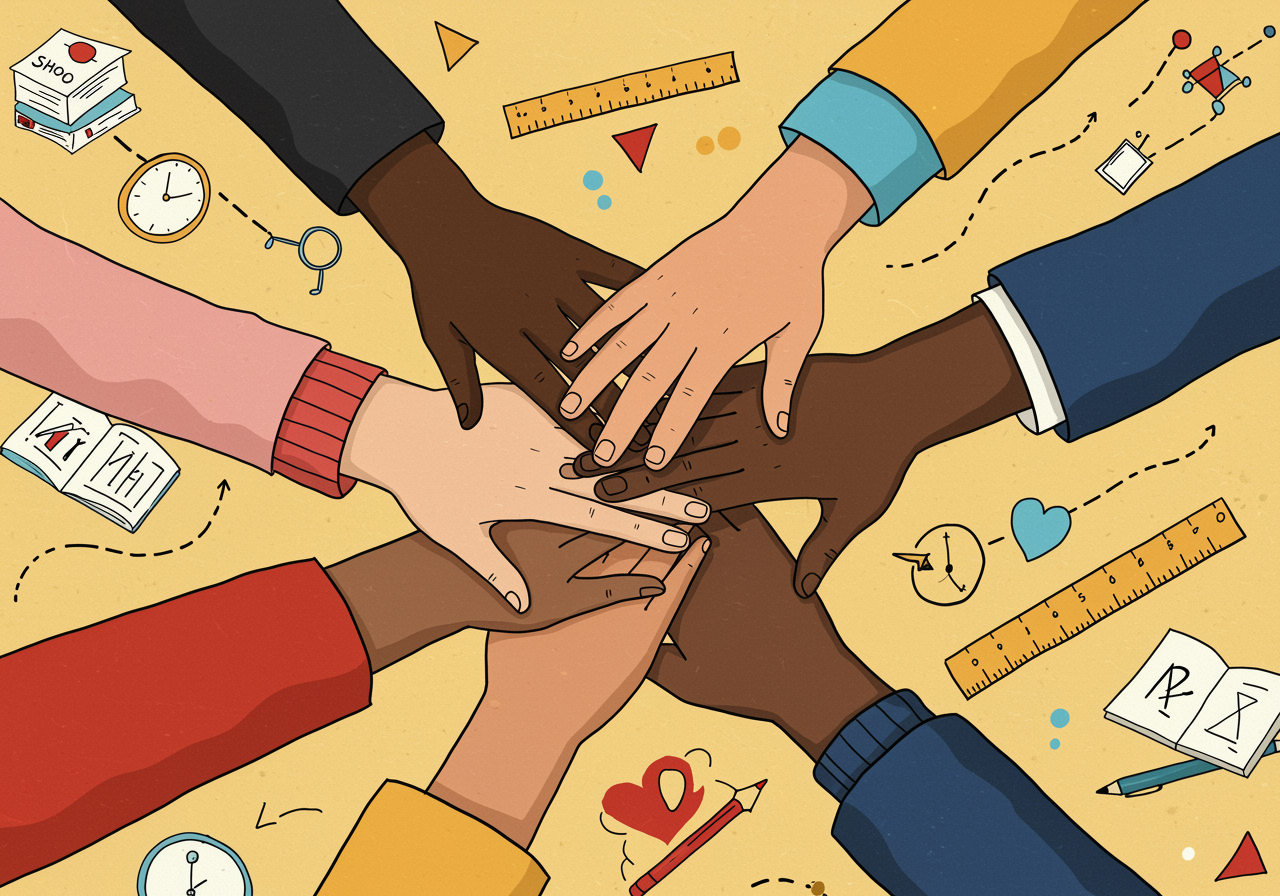Building Bridges: How Young People Can Help Create a Fair World for Everyone

Discover how small actions can make big changes in your community and beyond
Explore how teens and families can work together to build a more inclusive, fair society through everyday actions and conversations.
Overview
Think about your favorite team sport – it only works when everyone gets a fair chance to play and contribute their unique skills. Creating a fair society is a lot like building the ultimate team where everyone belongs, everyone's voice matters, and everyone can succeed. This isn't about politics or taking sides; it's about the basic human values most families share: treating others with kindness, standing up for what's right, and making sure everyone gets a fair shot. When teens understand they have the power to make positive changes in their schools, neighborhoods, and communities, they develop confidence and purpose that lasts a lifetime.

Understand in 30 Seconds
Get up to speed quickly
- What does 'fair society' even mean?: It's like making sure everyone gets equal playing time in a game, not because they're all the same, but because everyone deserves a chance to show what they can do.
- Why should teens care about this?: You're already making choices that affect fairness every day – from how you treat classmates to standing up for someone being bullied.
- Can young people really make a difference?: Absolutely! Some of the biggest positive changes in history started with young people who decided to speak up and take action.
- Where do we even start?: Start small and local – your school, friend group, or neighborhood. Big changes happen when lots of people make small, positive choices.
Real Life Scenario
Situations you can relate to
Imagine your school is choosing a new student council president. One candidate promises pizza parties every Friday, while another talks about making sure all students feel welcome and creating study groups for kids who need extra help. The pizza candidate is popular and funny, but you notice they only hang out with certain groups. The other candidate isn't as flashy, but you've seen them help struggling students and stand up for kids who get picked on. Which choice creates a more fair environment for everyone? This is exactly the kind of decision-making that shapes our communities. Every vote, every choice to include someone new at lunch, every time you speak up against unfairness – these moments add up to create the kind of world we all live in.

Role Play
Spark a conversation with “what if” scenarios
What if you noticed your friend group always excludes certain kids from plans?
- Role play: Practice having a conversation where you suggest including someone new. Role-play different responses your friends might have and how you'd handle each one.
What if you saw someone being treated unfairly at school but weren't sure how to help?
- Role play: Act out different ways to support someone – from direct help to getting a trusted adult involved. Practice what you'd actually say.
What if your community was deciding on a new policy that would affect young people, but no teens were asked for their opinion?
- Role play: Role-play organizing your friends to attend a town hall meeting or writing a letter to local leaders. Practice presenting your ideas clearly and respectfully.
FAQs
Frequently asked questions people want to know
Isn't this just about being nice to people?
It goes deeper than just being nice. It's about making sure systems and communities work fairly for everyone, not just the people who are already doing well.
What if my friends think I'm being too serious or 'preachy'?
You don't need to give speeches! Just model the behavior you want to see. Actions often speak louder than words, and people notice when you consistently treat others fairly.
How can I make a difference when I'm just one person?
Every major positive change started with individual people making choices. Plus, when you act fairly and include others, it often inspires your friends to do the same.
Examples in the Wild
See how this works day to day
- Greta Thunberg started climate activism as a teenager by simply sitting outside her school with a sign, inspiring millions of young people worldwide (BBC News)
- High school students in Parkland, Florida organized March for Our Lives after a school shooting, leading to policy changes and increased youth voter registration (March for Our Lives Foundation)
- Teen activists like Mari Copeny ('Little Miss Flint') brought national attention to the water crisis in Flint, Michigan, leading to government action (CNN)
- Students across the country have successfully pushed their schools to implement more inclusive dress codes and anti-bullying policies (Education Week)
In Summary
What you should know before you start
- Creating a fair society starts with small, everyday choices about how we treat others in our schools and communities
- Young people have unique power to create positive change because they often see unfairness more clearly than adults
- You don't need to be perfect or have all the answers – just start where you are with the people around you
- Building bridges between different groups is more effective than arguing or trying to prove who's right
Pro-tip for Parents
You got this!
If your teen seems overwhelmed by big social issues, help them focus on their immediate circle of influence first. Instead of debating national politics, ask them about fairness in their own school or friend group. When they share concerns about injustice, listen without immediately trying to 'fix' their feelings or offer solutions. Sometimes they just need to process what they're seeing in the world, and your role is to help them think through how they want to respond in their own life.

Keep an Eye Out For
Find these examples in everyday life
- School board meetings or student council elections where your teen can see local democracy in action
- Community volunteer opportunities where your family can work together on issues you care about
- News stories about young activists or positive changes happening in other communities that might inspire your teen
Explore Beyond
Look up these related research topics
- How do different cultures and countries approach fairness and community building?
- What role does technology and social media play in creating positive social change?
- How can we balance individual freedom with community responsibility?